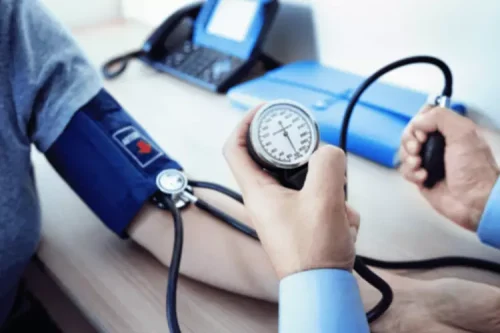
These symptoms aren’t necessarily unique to PTSD, but there might a change after the trauma. It’s very common to overestimate how much control you have and blame yourself. These emotions can lead to negative beliefs about yourself, like “It was my fault” or “If I hadn’t taken that one drink.” A common fear is that your feelings will get worse or never go away if you acknowledge them. Support groups and different styles of talk therapy may provide you with a safe space to explore these scary feelings. People with PTSD can also avoid their own feelings, thoughts, and memories.
Post-traumatic stress disorder (PTSD)

Depersonalization is when you feel detached from yourself and your emotions, possibly like you’re watching yourself out of your body. This could mean feeling like you’re in a dream or that time is moving slowly. People with PTSD might experience panic and the physical symptoms that accompany it. Your heart races, you sweat, your blood pressure rises, and your muscles tense. Some people get dizzy, develop blurry vision, or hear ringing in their ears.
- Some medications may have a positive impact on PTSD symptoms, like anxiety, depression, and sleep disturbances.
- You may feel like happiness is impossible or that no one cares for you.
- Additionally, crisis hotlines and emergency mental health services can offer immediate assistance during particularly challenging episodes.
- Figure 3 summarizes these findings while visually presenting a broader emotion dysregulation account of reactivity to trauma-related stimuli in PTSD.
- Time blackouts are a separate category, similar to mental blackouts but not noticeable until a couple of days pass.
Proactive Measures to Prevent PTSD Blackouts

PTSD is a complex mental health condition, but it’s treatable with psychotherapy, medication, and complementary treatments. If you’re ready to find support, the Anxiety & Depression Association of America and the ptsd blackout International Society for Traumatic Stress Studies can help you locate a mental health professional who specializes in trauma. While there’s no way to prevent a traumatic event from occurring, there are ways to manage any symptoms that arise in the aftermath of a trauma. A primary care physician or healthcare professional will likely refer you to a specialist for further evaluation if needed. Only a mental health specialist — such as a psychologist, psychiatrist, or clinical social worker — can accurately diagnose PTSD. In the few days after a traumatic event, it’s normal to feel overwhelmed, cry, or have difficulty focusing.

How do children and teens react to trauma?
- For individuals with PTSD, these blackouts may occur during times of extreme stress or anxiety.
- Because of its broad effects on the nervous system, PTSD can cause some less well-known symptoms, too, including dissociation, brain fog, and physical pain.
- Counseling helped me to take on these monster symptoms that were munching away 2/3 of my life.
- Over the long term, PTSD may lead to changes in the structure of the brain, due to a decrease in size of the hippocampus — the part of the brain that helps regulate emotions and memory.
For example, they may learn to say to themselves, “Even if I don’t have control here, I won’t be threatened in this situation.” Everyone has thoughts or beliefs that help them understand and make sense of their surroundings. After trauma, a person with PTSD may think or believe that threat is all around, even when this is not true. If you know someone who’s in danger of attempting suicide or has made a suicide attempt, make sure someone stays with that person for safety.
Researchers at NIMH and around the country conduct many studies with patients and healthy volunteers. We have new and better treatment options today because of what clinical trials uncovered years ago. Talk to your health care provider about clinical trials, their benefits and risks, and whether one is right for you. If you’re not sure where to get help, a health care provider can refer you to a licensed mental health professional, such as a psychiatrist or psychologist with experience treating PTSD. Find tips to help prepare for and get the most out of your visit and information about getting help. PTSD is a mental health condition that may occur as a result of witnessing or experiencing a traumatic event.
Resources and support

About six out of every 100 American adults, which is about 6% of the population, will have PTSD in their lifetime. Read on to learn about PTSD symptoms and when to contact a healthcare provider. Because of its broad effects on the nervous system, PTSD can cause some less well-known symptoms, too, including dissociation, brain fog, and physical pain. The systems most closely linked to emotion and survival — heart, circulation, glands, brain — are called into action. If you have PTSD, this higher level of tension and arousal can become your normal state.
The stress hormones and chemicals the body releases due to the stress go back to Sober living house normal levels. For some reason in a person with PTSD, the body keeps releasing the stress hormones and chemicals. Talk to a healthcare provider if you have PTSD symptoms that persist for long periods. Talk therapy, medications, or both can often help alleviate PTSD symptoms. PTSD is not contagious, so you can’t spread it or catch it from other people.
Unfortunately, there may not be much you can do during a PTSD blackout because you won’t have control of your mind or body at the time. Someone in the room with you may be able to talk you out of the blackout by helping you get grounded – answering questions about the present day, reminding you where you are, telling you who you are with, etc. If you experience a blackout by yourself, you probably will not be aware enough to control your actions in the moment. The best way to combat this is to learn how to prevent PTSD blackouts. Educating loved ones and the broader community about the nature of PTSD blackouts can help reduce stigma and improve support systems for those affected. It’s important to emphasize that blackouts are not a choice or a sign of weakness, but rather a complex symptom of a serious mental health condition that requires compassion and professional support.
Over the long term, PTSD may lead to changes in the structure of the brain, due to a decrease in size of the hippocampus — the part of the brain that helps regulate emotions and memory. Among veterans, there is some research to suggest that playing video games can reduce symptoms of PTSD. These symptoms — referred to as re-experiencing symptoms in older versions of the DSM — are those that take you back to the trauma. In general, any stressful event where you feel fear, shock, horror, or helplessness can cause PTSD.
- You might also be asked to complete a questionnaire and answer questions about your personal and family history.
- Unlike age-related memory decline or the effects of certain medications, PTSD blackouts are typically episodic and closely tied to traumatic experiences.
- For instance, stress from your work may have increased the frequency of your PTSD blackouts.
- A mental health professional who has experience helping people with PTSD, such as a psychiatrist, psychologist, or clinical social worker, can determine whether symptoms meet the criteria for PTSD.
- Use these resources to find help for yourself, a friend, or a family member.
- The trauma and shock of early childhood abuse often affects how well the survivor learns to control his or her emotions.
Upcoming Observances and Related Events
Some evidence suggests thatTrIGR could be effective in reducing trauma-related guilt. Cognitive behavioral therapy (CBT) may help provide relief to your PTSD-related anger or at least begin to help you learn coping mechanisms. A specific type of arousal symptom is outbursts, sometimes with little or no reason behind them. This symptom may manifest in verbal or physical aggression toward people and objects.

